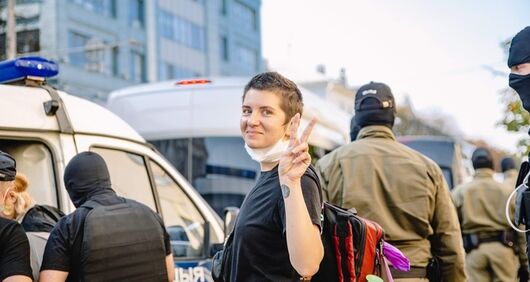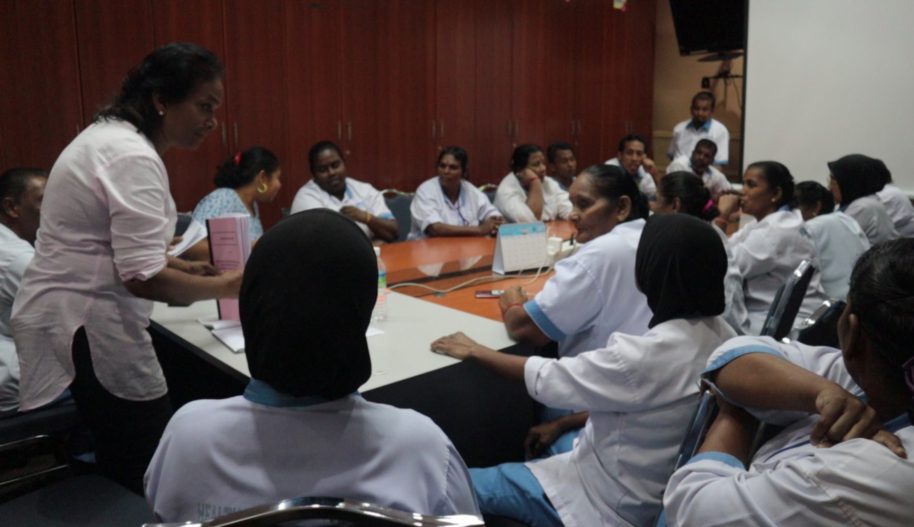Good News Stories - October 2020
Slovakia
The Slovak parliament last month narrowly rejected a motion by conservative lawmakers to tighten abortion rules, a proposal that was harshly criticised by women’s rights groups. The proposed amendment, defeated by a 59-58 margin, would have still allowed abortion on demand until 12 weeks into a pregnancy but would have doubled waiting periods to 96 hours, banned clinics from advertising services and made women declare their reasons for termination.
Together with 110 other organizations, Amnesty International expressed its deep concern regarding current threats to reproductive rights in Slovakia. The legislation would have imposed new barriers to accessing lawful abortion care, harm women’s health and well-being, and undermine their
decision-making and privacy. It would also force doctors to act in conflict with their professional obligations to their patients. The legislation could have created a dangerous chilling effects on the provision of lawful abortion care in Slovakia, and increase the harmful stigma surrounding abortion.
The proposal drew concern not just in Slovakia but also its northern neighbour Poland, where rights activists say hundreds and possibly thousands of women cross the border to Slovakia every year for
abortions that would be illegal at home.
Opponents of the proposal including dozens of human rights groups said the amendment would put women under stress and might force some into accepting unsafe abortions. Just 17% of people in Slovakia favour tougher abortion rules, according to a poll published in July. Slovakia, unlike the
neighbouring Czech Republic, is majority Roman Catholic although the church is less influential than in Poland, whose government is deeply conservative. Read more here...
____________________________________________________________
Belarus
On 11 October LGBT+ activist and prisoner of conscience Victoria Biran was released after two weeks in detention. Victoria Biran was detained on her way to the Women’s March in Minsk, Belarus on 26 September and sentenced on 28 September to 15 days of administrative detention for
intending to exercise her rights to freedom of expression and peaceful assembly. Victoria was held under Article 23.34 of the Code of Administrative Offences (‘Violation of the procedure for organising or holding mass events’) and was released on 11 October.
According to her friends, when Victoria was arrested and brought to a police station, a law enforcement official gave her a list of names and asked her to point out LGBT+ activists. However, later police claimed that they had had no knowledge of Victoria Biran’s LGBT+ activism and had not even noticed her large rainbow flag.
Victoria was first brought to the detention centre where she was placed in an overcrowded cell, in which some women had to sleep on the floor. On 29 September she was moved to the prison located in the town of Zhodino.
While Amnesty International welcomes Victoria Biran’s release at the end of her 15-day administrative detention, Victoria Biran did not commit any offence and was only intending to exercise her rights to freedom of expression and peaceful assembly and should not have been
arrested or detained in the first place. Read more here...

____________________________________________________________
Malaysia
On 2 October 2020, five activists who were charged for “unauthorized gathering” were granted a discharge not amounting to acquittal (DNAA) by the Ipoh Magistrate. The charges stemmed from the activists’ participation in a peaceful picket on 2 June 2020 by a government hospital cleaners’
union against a cleaning services company. During the picket, they called out the alleged unfair treatment of union members and insufficient personal protective equipment for cleaners.
Allegations raised during the picket included inadequate supply of protective equipment against COVID-19 and intimidation of cleaners active in the union, which were denied by the company. The action consisted of less than 20 people who all practised physical distancing, wore masks, and
had their temperatures checked. The five activists were arrested and remanded overnight and chained in court which is a form of inhuman or degrading treatment that may amount to torture. They were charged on 2 June 2020 for allegedly violating the Prevention and Control of Infectious
Diseases (Measures within the Infected Local Areas) Regulations 2020.
The lawyer argued in a letter of representation to the court that the picket could not be considered as a gathering or march related to the economy, religion, education, sports, recreation, social or culture, which is restricted under Section 7(1) of the Movement Control Order implemented by the
Malaysian government in light of the pandemic. She also said picketing does not fall under “prohibited activity” that was listed in Regulation 2 of the Prevention and Control of Infectious Diseases (Measures within the Infected Local Areas) Regulations 2020. The prosecution accepted
the defences letter of representation to not proceed with the charges, and the Ipoh Magistrate’s Court granted the activists the acquittal on 2 October 2020. One of the activists’ lawyers stated that it is highly unlikely that the activists will be called back. Read more here.

More good news stories will be published next month.
0 comments